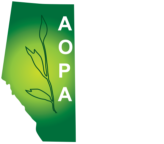Top 8 Reasons to Buy Organic Products
1. PROTECT FUTURE GENERATIONS
The average child receives four times more exposure than an adult to at least eight widely used cancer-causing pesticides in food. The food choices you make now will impact your child’s health in the future.
2. PREVENT SOIL EROSION
Soil is the foundation of the food chain in organic farming. Using organic farming methods has a positive effect on soil nutrients and minimizes soil erosion.
3. PROTECT WATER QUALITY
Water makes up the two-thirds of our body mass and covers three-fourths of the planet. Pollution enters water bodies in a number of ways, including industrial and municipal discharge, runoff, spills, and deposition of airborne pollutants. Algal blooms which are caused by excessive nitrogen from fertilizer leeching into water are a major issue. An overload of chemicals results in pollution, which eventually puts the ecosystem out of balance. Even in tiny amounts, some of these substances can cause serious harm.
4. SAVE ENERGY
Modern farming uses more petroleum than any other single industry consuming large amounts of our energy supply. Organic farming is still mainly based on labour-intensive practices such as cultivation and using green manures and crop covers, rather than synthetic fertilizers and sprays to build up soil. Organic produce also tends to travel fewer miles from field to table.
5. KEEP CHEMICALS OFF YOUR PLATE
Pesticide use is associated with two things: toxicity in the environment and causing human health problems. Pesticides have been linked to many different types of cancer in humans from breast cancer (DDT) to non-Hodgkin lymphomas and soft-tissue sarcomas (phenoxy herbicides). Chronic low-level exposure to pesticides has been linked to low-grade symptoms such as allergies, headaches, dizziness, nausea, and mental confusion. Linkages have also been identified between home and garden pesticide use and leukemia and brain cancer in children. A National Cancer Institute study in the U.S. indicates that children are as much as six times more likely to get childhood leukemia when pesticides are used in the home and garden.
6. PROTECT FARM WORKER HEALTH
Working on conventional farms exposes workers to a wide variety of pesticides and chemicals, which can lead to pesticide poisoning. The workers running grain elevators are subject to emphysema (chronic shortness of breath) which is a direct result of grain dust laden with chemicals. In addition, combine dust is incredibly toxic when exposure is high. Farm worker health is also a serious problem in developing nations, where pesticide use is poorly regulated. As estimated 1 million people worldwide are poisoned annually by pesticides.
7. PROMOTE DIVERSITY
Mono-cropping is the practice of planting large plots of land with the same crop year after year. While this approach tripled farm production between 1950 and 1970, the lack of natural diversity of plant life has left the soil lacking in natural minerals and nutrients. To replace these nutrients, chemical fertilizers are used, often in increasing amounts to supplement vitamins and minerals that have been destroyed by chemicals. Single crops are also much more susceptible to pests, making farmers more reliant on pesticides. Using a rotation system with nitrogen fixing crops such as peas replenishes the soil, without the use of chemicals.
8. TASTE BETTER FLAVOUR
There’s a good reason why many chefs use organic foods in their recipes – they taste better! Organic farming starts with the nourishment of the soil which eventually leads to the nourishment of the plant and, ultimately, our plates. By choosing organic and local food at retail outlets and restaurants, you are contributing to sustainable agriculture and a better future. Studies (2010) have also proven the higher anti-oxidant levels of organic strawberries over conventionally produced berries attesting to the nutritional benefits.

